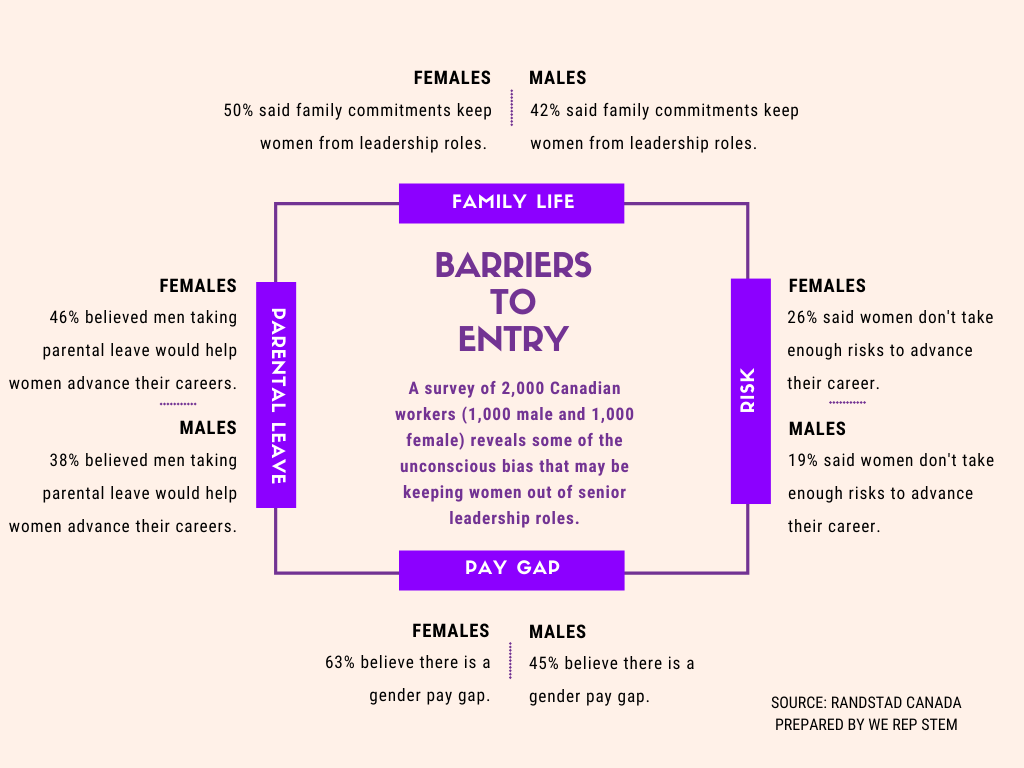Canadian survey reveals unconscious bias keeping women out of leadership roles

Photo courtesy: Canva.
Men and women aren’t equally represented in company C-suites, and while there are several factors contributing to a gender gap among male and female executives, some may be more impactful than others.
In a recent Canada-based survey of 1,000 men and 1,000 women (2,000 participants total) commissioned by HR consulting firm Randstad Canada, 62 per cent of the female participants identified gender discrimination as the leading cause of the lack of female executives.
Among the men, 41 per cent cited sexism as the main barrier. More than a quarter of the male participants (27 per cent) said the reason there aren’t more women in leadership is due to a lack of qualified candidates.
“The fundamental differences in how women and men are responding to the same question forces us to consider what underlying unconscious biases are at work – for both women and men – and how organizations can address them,” Carolyn Levy, president of technology at Randstad Canada, said in a statement.
“If this number of working men don’t believe gender discrimination is an issue and that there simply aren’t qualified women for leadership roles, it creates a barrier for women’s advancement – by acknowledging these issues, we correct them and create more balanced leadership teams and boards,” she adds.

Canadians employees of all genders believe men are more confident and analytical, and women are more empathetic and better listeners.
Men were believed to be better at STEM subjects, while women were categorized as being better at caregiving, communications and the arts.
The findings align with previous research suggesting both genders associate “science” with “maleness.”
“There’s research suggesting that you can document a ‘think science, think male’ implicit association showing up with kids as early as elementary school,” said Toni Schmader, a UBC psychology professor and Canada Research Chair in social psychology, and author of an August paper on unconscious gender bias.
“We learn associations from what we see in our environment. If we don’t see a lot of women who are role models in science, then we learn to associate science more with men than women.”
